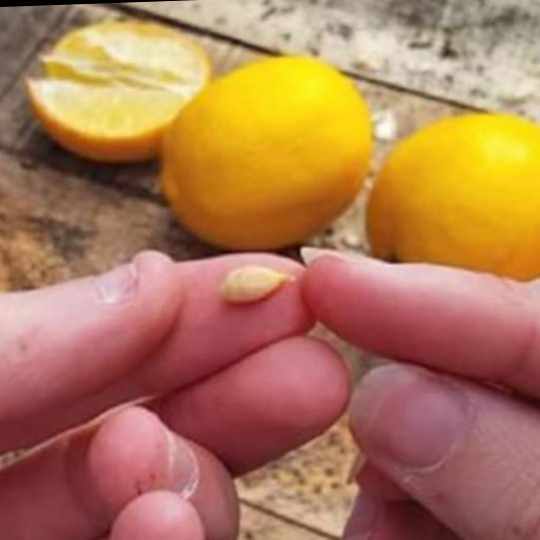If you also usually throw the lemon seeds out, you’ll start saving them and learn about their possible uses.
Use of lemon seeds: Lemons are citrus fruits that are highly valued for their unique flavor and versatility in a range of cooking and cleaning applications. They are a fantastic source of vitamin C, and their natural acidity helps with digestion and reduces bloating. Their origins date back thousands of years to Asian nations, from where they were traded and spread widely over the Mediterranean.
Among the ingredients that are typically found in homes are lemon peels and seeds, which are used in cooking to season meals and create sauces as well as sweets, which are mostly made with the zest. Besides, since we consume the juice, pulp, and zest of lemons so frequently, why should we throw away the seeds? These pointers will help you get the most out of it.
After using the lemon, set the seeds aside and give them a thorough rinse through a sieve using room temperature water. Once that’s done, spread them out on a paper towel to dry completely. Next, begin “peeling” the seeds—that is, removing the outer layer of skin—with a pair of tweezers.
Next, put some damp cotton into a small container (like a yogurt pot). Once the seed has been sown into the cotton, give it at least a week to grow. After around seven days, the seed will have given rise to a little shoot.
Until your young sapling starts to produce tiny roots, keep the cotton and the surrounding region moist to promote continued growth. You now need to put your seed in a tiny container filled with a soil and perlite combination to make sure the soil drains well. After it is planted, the shoot will need constant care. It should be kept in a warm, well-ventilated place and away from drafts. Make sure the soil stays constantly moist and allow nature to take its course if you want to plant a lemon tree that will produce delicious fruits once it reaches maturity.
Make a scent
Lemon seeds are useful for more than just sprouting new plants. Creating a scent for drawers and cabinets is one such use. The first step is still to rinse the seeds; the skin is not removed. Even after washing, citrus seeds retain their unique scent for a long time. After that, you may use them to scent drawers, cupboards, and even particular areas of the house, like the bathroom, by placing them in a little canvas bag. They will smell wonderfully of lemon in the winter when they are hooked to the radiator. All you have to do is figure out how to take use of the many qualities that a citrus fruit’s seeds have to offer.

